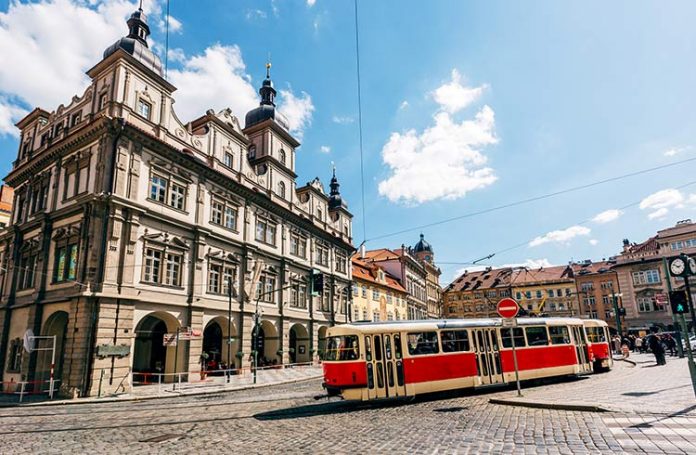Representatives from the Czech Republic and Prague, as well as many other representatives from European and non-European countries around the world, strongly condemn Russia’s invasion of Ukraine, a sovereign neighbouring country. At the same time, the Czech Republic, and Prague in particular, as one of the primary Czech cities coping with the influx of refugees, are expressing sympathy with those who have lost their homes or even family as a result of the armed war, and are offering support and assistance.
“As the current situation has touched many aspects of our daily life, we at the Prague Convention Bureau, an official representative of the City of Prague in the field of the meetings industry, would like to comment on the current development in Prague in this regard and answer many questions that can possibly arise in this unprecedented situation,” says Roman Muška, Managing Director at the Prague Convention Bureau.
The declaration of a state of emergency has no effect on residents or visitors.
Until recently, the Czech Republic received around 200 000 migrants (out of a total of over 3 million refugees, according to a UN study), primarily women with young children. To deal with the influx of newcomers effectively, the Czech government announced a state of emergency on March 4 for 30 days, which might be extended. The state of emergency has little impact on local residents, leisure or business travellers.
Prague venues are available for events
The Czech Republic’s two major cities, Prague and Brno, serve as the country’s primary points of contact. The City of Prague constructed an assistance centre at the Prague Congress Centre, which has adequate facilities to accommodate a higher number of individuals. Nonetheless, the Prague Congress Centre’s event operations are not entirely disrupted. The Congress Centre continues to host local and international events in areas distinct from the Assistance Centre.
“We believe we can meet not only our humanitarian but also our commercial needs. One way to support us and the rest of the Czech Republic, as well as Europe, is to go through with planned events,” says Lenka Žlebková, CEO of the Prague Congress Centre. “We are very grateful to the organisers of the World Environmental Education Congress, who saw this as an opportunity, and they are right now in the PCC running their congress while the refugee centre is in full operation. It is very unfortunate that the other two international congresses preferred to move them into online space, even though they were also offered another venue in Prague.”
“Therefore, we are in close contact with our clients to discuss all aspects of their events to see if they will be affected and how we can solve it. Our building has a great disposition for holding various events at the same time, and our team is experienced in using our best features for difficult situations,” she adds.
Simultaneously, the other two main Prague meeting centres can now accommodate large-scale events as well. Prague, in conjunction with smaller venues, can accommodate more than 180,000 people at the same time.
Prague’s accommodation capacity
Some of the Ukrainian migrants sought safety with family or acquaintances who already lived in the Czech Republic. Those migrants who did not have a choice were housed in specially designed facilities or in the homes of Czech families. Czech hotels reacted quickly to this circumstance as well, offering a portion of their housing capacity, mostly until the end of March 2022.
“Prague has not lost its reputation as a safe destination nor the scope and quality of services it provides. Hotels are ready to meet all the expectations of tourists and participants of MICE events and therefore reaffirm the position of the capital city among the leading MICE destinations,” says Václav Stárek, President of the Czech Association of Hotels and Restaurants.
Even the largest and most demanding events and their attendees may still be accommodated in Prague. Prague has around 44,500 rooms (102,000+ beds) in 910 hotels of all types.
“As destination representatives, we are proud of all the immediate support provided by many meeting industry players. At the same time, we are aware that it is necessary to keep the business meetings going to enable the continuity of the support provided from the first days, even though the last two years were very challenging for the meeting industry,” adds Roman Muška.
Travelling to Prague and the Czech Republic
The Czech Republic, like other countries, has closed its airspace to Russian airlines as of Sunday, February 27, 2022, at midnight. Because of the declared state of war in Ukraine, civil airspace has been blocked, and aviation travel from and to Ukraine has been disrupted.
COVID-19 restrictions lifted
The Czech Republic and Prague are keeping a close eye on the COVID-19 progress in terms of migrants arriving at the destinations. According to the most recent figures, the Czech Republic eliminated all prohibitions save the requirement to wear face masks (FFP2 or equivalent) in public transportation and at establishments offering medical or social services beginning March 14.












